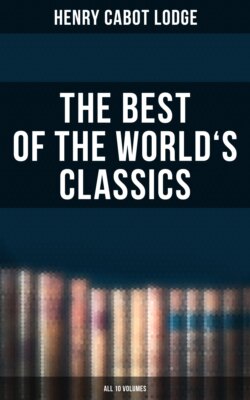Читать книгу The Best of the World's Classics (All 10 Volumes) - Henry Cabot Lodge - Страница 56
На сайте Литреса книга снята с продажи.
ОглавлениеIII
THE PHILOSOPHER AND THE CROWD[113]
Table of Contents
The first difference between one of the crowd and a philosopher is this: the one says, "I am undone on the account of my child, my brother, my father"; but the other, if ever he be obliged to say, "I am undone!" reflects, and adds, "on account of myself." For the Will can not be restrained or hurt by anything to which the Will does not extend, but only by itself. If, therefore, we always would incline this way, and whenever we are unsuccessful, would lay the fault on ourselves, and remember that there is no cause of perturbation and inconstancy but wrong principles, I pledge myself to you that we should make some proficiency. But we set out in a very different way from the very beginning. In infancy, for example, if we happen to stumble, our nurse does not chide us, but beats the stone. Why, what harm has the stone done? Was it to move out of its place for the folly of your child? Again, if we do not find something to eat when we come out of the bath, our tutor does not try to moderate our appetite, but beats the cook. Why, did we appoint you tutor of the cook, man? No; but of our child. It is he whom you are to correct and improve. By these means even when we are grown up, we appear children. For an unmusical person is a child in music; an illiterate person, a child in learning; and an untaught one, a child in life.
FOOTNOTES:
[113] From the "Discourses." Translated by Thomas Wentworth Higginson. Copyright, 1890, by Little, Brown & Co.
